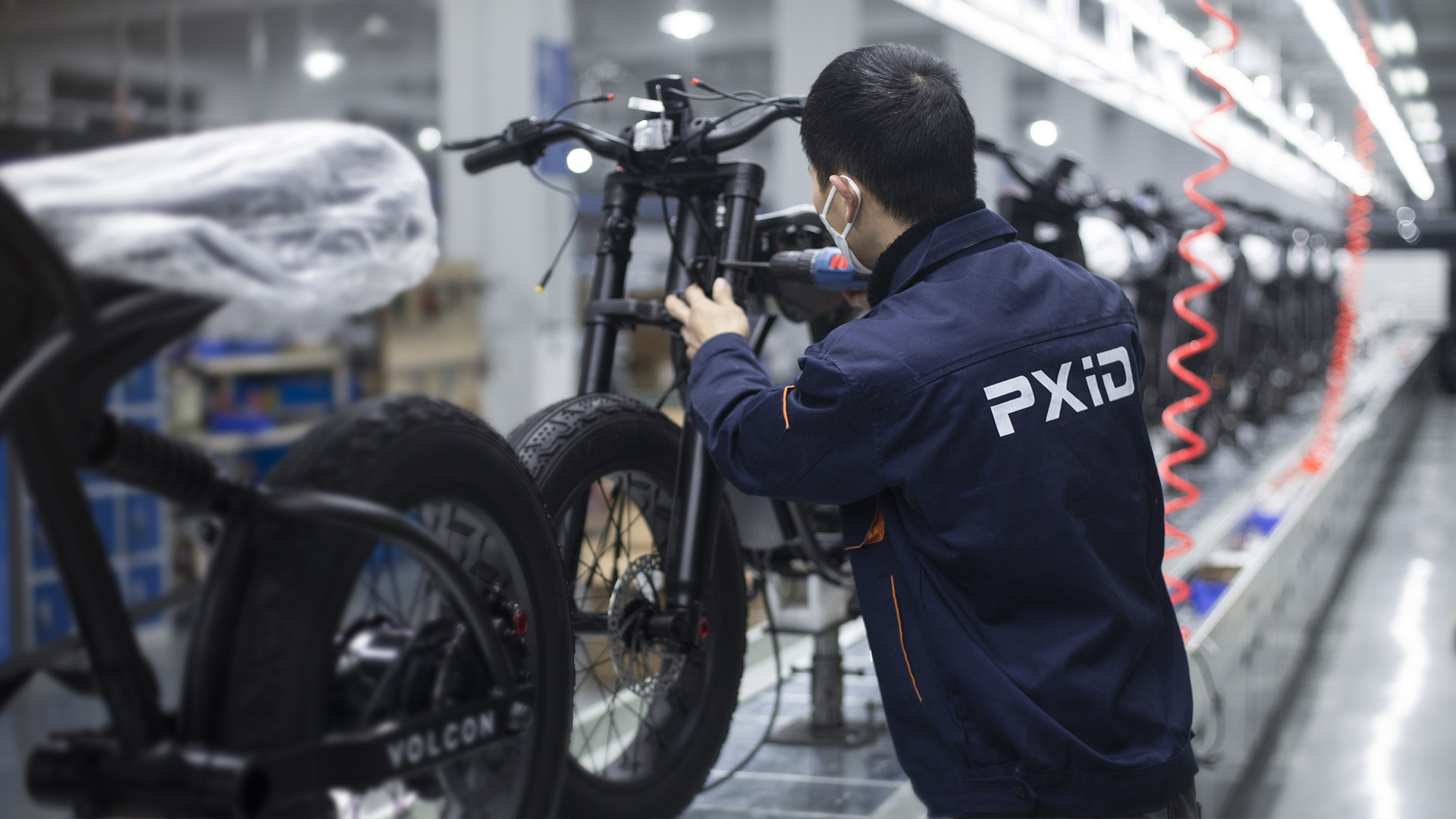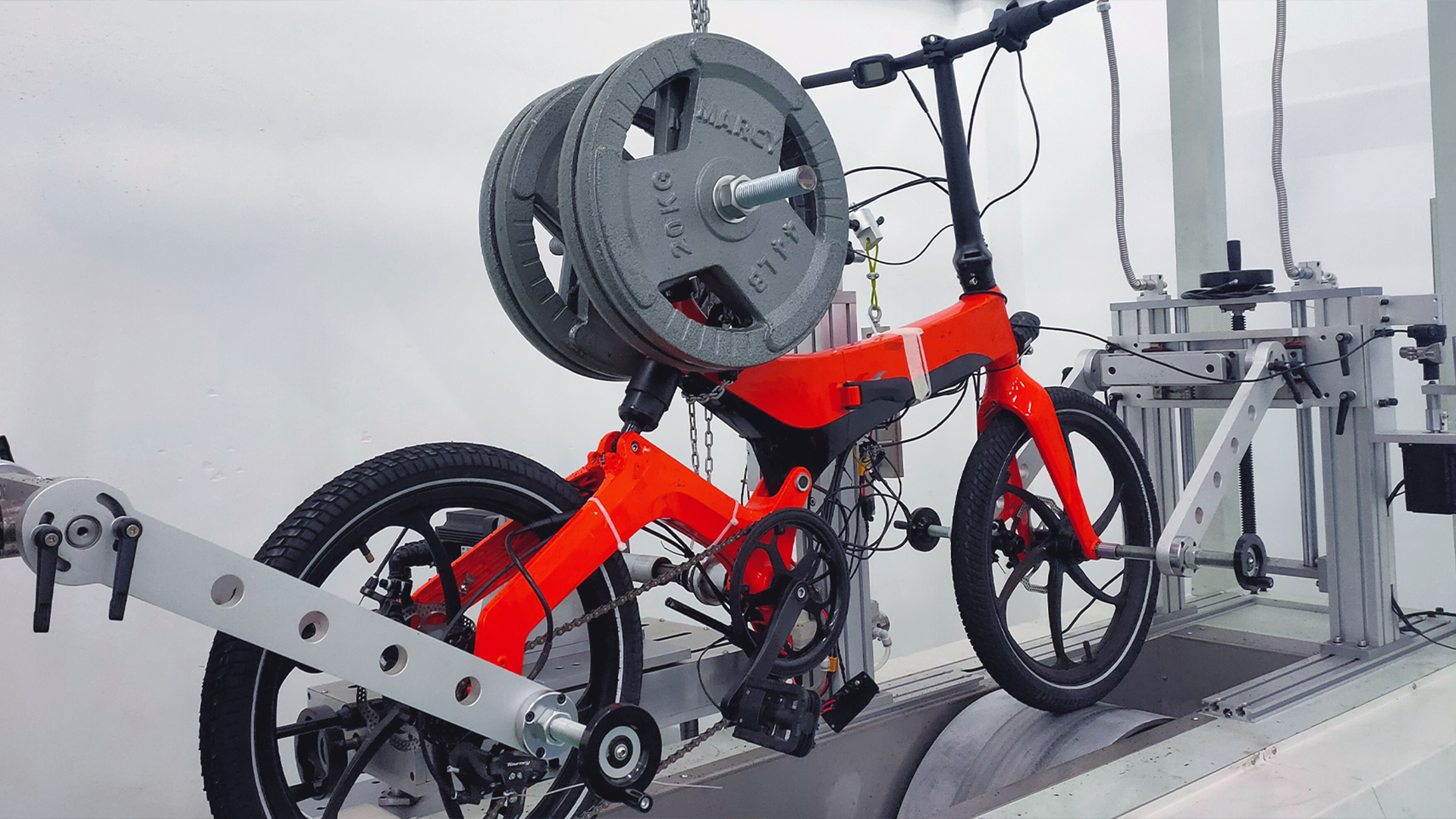In the e-mobility ODM sector, where clients depend on on-time, consistent deliveries to meet market windows or fleet deployment timelines, the ability to manage production with precision and flexibility is a critical competitive advantage. Many ODMs struggle with inconsistent workflows, inefficient use of factory capacity, and delays caused by uncoordinated production steps. PXID distinguishes itself by building its ODM services around strictly standardized production processes and strategic capacity allocation—two pillars that ensure every order, whether small-batch prototypes or large-scale fleet orders, is delivered on schedule, with uniform quality, and without unexpected bottlenecks. Backed by a 25,000㎡ modern factory, proven order fulfillment track records, and detailed production protocols, PXID demonstrates that reliable ODM service stems from intentional process design and smart use of manufacturing resources.
Standardized Production Workflows: Eliminating Inconsistency at Every Step
PXID’s production system is built on detailed, documented standard operating procedures (SOPs) for every stage of manufacturing—from component machining and assembly to testing and packaging. These SOPs, refined over 13 years of e-mobility ODM experience and 120+ launched models, ensure that every team member follows the same steps, reducing human error and ensuring consistency across units.
For example, the assembly of e-scooter frames follows a 12-step SOP that includes specific torque settings for fasteners, mandatory inspection checkpoints (e.g., verifying frame alignment with calipers), and standardized packaging instructions to prevent damage during shipping. This standardization was pivotal for fulfilling Wheels’ $250 million order of 80,000 shared e-scooters: by adhering to the frame assembly SOP, PXID achieved a 99.7% consistency rate in frame alignment, meaning nearly every scooter met the same structural specifications. The SOPs also include contingency plans—such as alternative machining tools if primary equipment requires maintenance—which prevented delays during the order’s peak production period. Similarly, for the S6 e-bike, which is sold through retailers like Costco and Walmart, standardized battery installation procedures ensured 100% compliance with safety standards, eliminating the risk of electrical issues that could lead to product recalls or customer returns.
These workflows aren’t static; PXID updates SOPs regularly based on lessons from past projects. For instance, after identifying a minor delay in e-bike handlebar assembly during early S6 production, the team revised the SOP to reorder two steps (attaching grips before installing controls), cutting assembly time per unit by 3 minutes—a small change that saved 1,000 hours of labor over the course of 20,000-unit production.

Strategic Capacity Allocation: Matching Factory Resources to Order Needs
A key challenge for ODMs is balancing multiple client orders without overloading certain production lines or leaving equipment underused. PXID addresses this with strategic capacity allocation: it maps each order’s requirements (e.g., production volume, specialized equipment needs, timeline) to the factory’s available resources (CNC machines, assembly lines, labor shifts) and creates a detailed production schedule that optimizes resource use.
This approach was critical for managing concurrent orders from Urent and a retail client. Urent needed 30,000 shared scooters delivered in 9 months, while the retail client required 5,000 S6 e-bikes for a summer sales push—both orders overlapping in production timing. PXID’s capacity allocation team analyzed the factory’s 8 CNC machining centers, 4 assembly lines, and 3 testing stations, then assigned dedicated lines to each product: 2 CNC centers and 2 assembly lines focused on Urent’s scooters (to meet the high volume), and 1 CNC center and 1 assembly line for the e-bikes (to prioritize speed for the retail deadline). The remaining equipment was kept as a “flex reserve” to handle unexpected surges—such as when Urent requested a 10% increase in scooter production halfway through the order. By reallocating the flex reserve to Urent’s lines, PXID fulfilled the revised order without delaying the e-bike delivery.
Capacity allocation also includes careful scheduling of raw material deliveries to align with production stages. For the S6 e-bike, PXID coordinates with magnesium alloy suppliers to deliver materials in weekly batches that match the assembly line’s daily output of 800 units. This “just-in-time” approach prevents excess inventory from cluttering the factory floor while ensuring materials are never out of stock—a balance that kept the S6 production on track even when a supplier faced a brief shipping delay (PXID’s reserve stock, planned as part of capacity allocation, covered the gap).
Dedicated Testing Protocols: Standardized Quality Checks Before Delivery
To ensure that standardized production doesn’t come at the cost of quality, PXID has implemented dedicated, stage-specific testing protocols that are integrated into every order’s workflow. These protocols are tailored to the product type but follow consistent standards for rigor—ensuring that every unit meets safety and performance requirements before it leaves the factory.
For shared mobility products like Urent’s scooters, testing includes three mandatory stages: a static load test (verifying the frame can support 150kg without bending), a brake performance test (measuring stopping distance at 25km/h), and a waterproofing test (subjecting electronics to 30 minutes of simulated rain per IPX6 standards). Each test has a pass/fail criteria documented in the SOP, and units that fail are routed to a dedicated rework team—no exceptions. During Urent’s 30,000-unit order, this testing process caught 120 scooters with minor brake adjustments needed, all of which were fixed before shipment. For the S6 e-bike, testing also includes a 5km road trial on a simulated urban course to check for noise, vibration, and smooth motor operation—ensuring the product meets the same ride quality standards across all 20,000 units sold globally.

Proven Results: Reliable Delivery Across Order Types
PXID’s focus on standardized processes and capacity allocation has yielded measurable results for clients. The S6 e-bike was delivered to retail partners 2 weeks ahead of the agreed timeline, allowing Walmart to stock inventory for the busy spring riding season. Wheels’ 80,000 scooters were fulfilled on schedule, enabling the client to launch its West Coast fleet as planned and capture summer ridership demand. Urent’s order, despite the mid-production volume increase, was delivered within the original 9-month window—helping the client expand its shared mobility network ahead of competitors.
These successes align with PXID’s credentials as a Jiangsu Provincial "Specialized, Refined, Peculiar, and Innovative" Enterprise and a National High-Tech Enterprise—recognition of its ability to combine structured processes with effective resource management. For e-mobility clients, this means more than just on-time delivery; it means predictable, stress-free partnerships where they can focus on growing their business, not troubleshooting production issues.
In an industry where reliability can make or break a client’s market position, PXID’s standardized production processes and efficient capacity allocation set a benchmark for e-mobility ODM service. By prioritizing consistency, resource optimization, and quality through intentional process design, PXID delivers more than products—it delivers peace of mind.
Partner with PXID, and experience ODM service built around the reliability your e-mobility business needs to succeed.
For more information about PXID ODM services and successful cases of electric bicycles, electric motorcycles, and electric scooter design, and production, please visit https://www.pxid.com/download/
or contact our professional team to obtain customized solutions.



























 Facebook
Facebook Twitter
Twitter Youtube
Youtube Instagram
Instagram Linkedin
Linkedin Behance
Behance tiktok
tiktok

